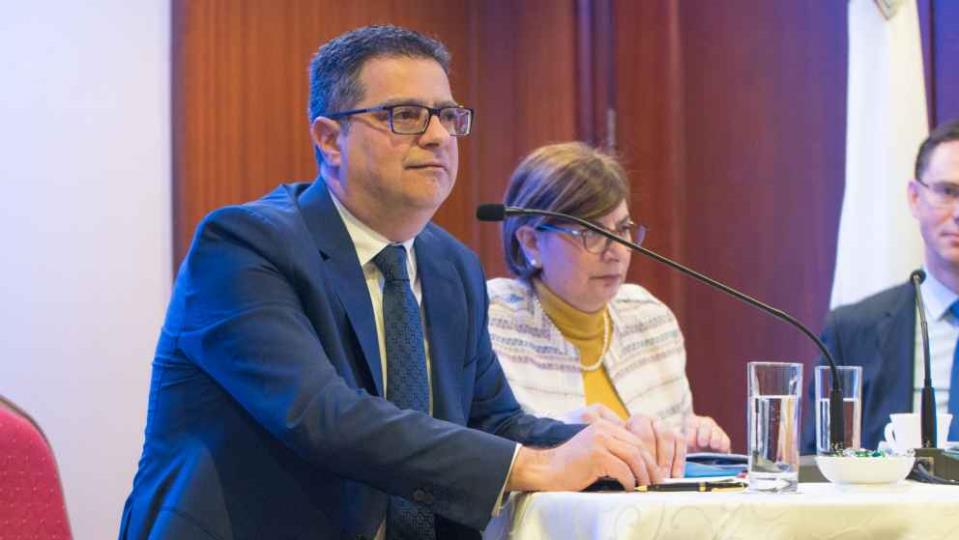Unions representing SMEs and hoteliers have aired their concern on access to finance, highlighting the lack of risk appetite by Malta’s local major banks.
EU Commission Vice-President Jyrki Katainen, Opposition Leader Adrian Delia and PN MEP Roberta Metsola addressed a business breakfast with the theme: ‘Bringing Europe’s Investment Plan to SMEs and Industry in Malta’.
President of the GRTU – Chamber of SMEs Paul Abela said that big banks don’t want to take risks in Malta, resulting in problems for small businessmen. UHM – Voice of the Workers CEO Josef Vella highlighted bureaucratic issues when it comes to helping foster initiatives like the creation of cooperatives, while the MHRA representative backed the GRTU’s statement regarding access to finance, calling for easier direct funding from the EU
Katainen, who is also the Commissioner for Jobs, Growth, Investment and Competitiveness, highlighted the existence of the European Fund for Strategic Investments (EFSI). EFSI is an initiative launched jointly by the EIB Group – the European Investment Bank and European Investment Fund – and the European Commission to help overcome the current investment gap in the EU. EFSI is one of the three pillars of the Investment Plan for Europe that aims to revive investment in strategic projects around the continent to ensure that money reaches the real economy.
Here, businesses can apply directly to the European Investment Bank for certain projects, he highlighted, while also stating that agreements are reached with intermediaries to help localise the situation, he said, adding that APD bank in Malta is one such intermediary.
In 2016, The European Investment Fund (EIF) and APS Bank Limited (APS) signed the first SME financing agreement in Malta under EFSI. The agreement will allowed APS to provide low-cost loans to SMEs in Malta for a few years.
Katainen said that this invest plan will run till next year and will then be replaced by a bigger invest plan in 2021, however it would have certain policy focuses.

Opposition Leader Adrian Delia spoke of a lack of competition in the banking sector, stating that 90% of businesses bank with two banks in Malta, which creates issues.
Delia pressed upon the issues surrounding Brexit, and the issues such uncertainty are creating.
“We need to be aware, at all times, of what will happen, how and when . We need to understand the abilities of Maltese business to react.”
He went on to say that Malta’s size could be a positive in this regard, as the country is “lean and nimble.” He said, however, that the quickest growing consumer markets are outside the EU, to the East in Asia and Africa.
He spoke of the Juncker Plan, and stressed that Malta must see whether this plan caters for island states like Malta.
He said that it was recently revealed that Malta was the least successful of the 28 countries when it comes to EFSI triggered investment per Euro GDP. He said that this is of concern and worry and Malta must understand what is hindering this take-up.
Maltese MEP Metsola spoke of industry’s wish to be involved in how EU funds and regulations are proposed, used and implemented. She said that a one-size fits all policy for all states would not work.
She also reiterated her concern with moves to introduce tax harmonisation at EU level, and attempts being made to remove the requirement for a unanimous agreement for this issue.